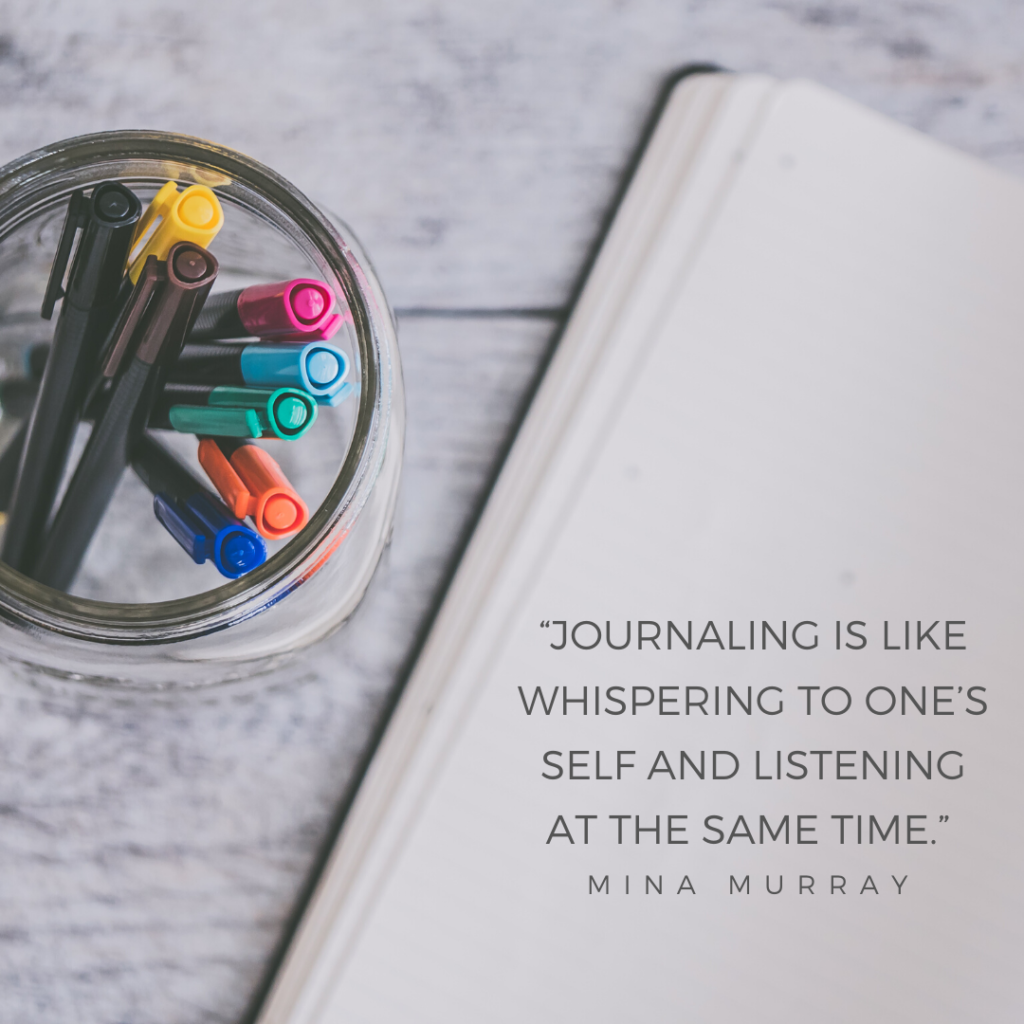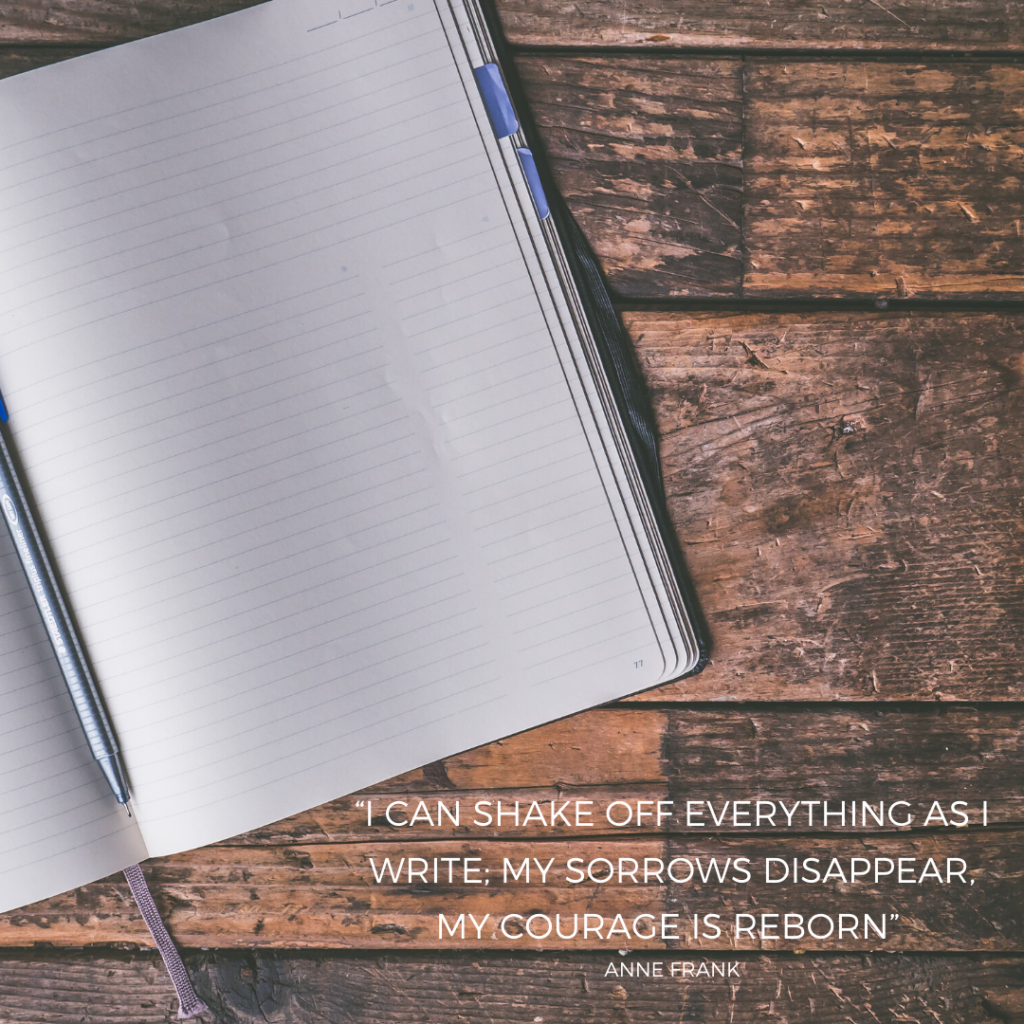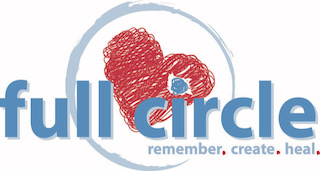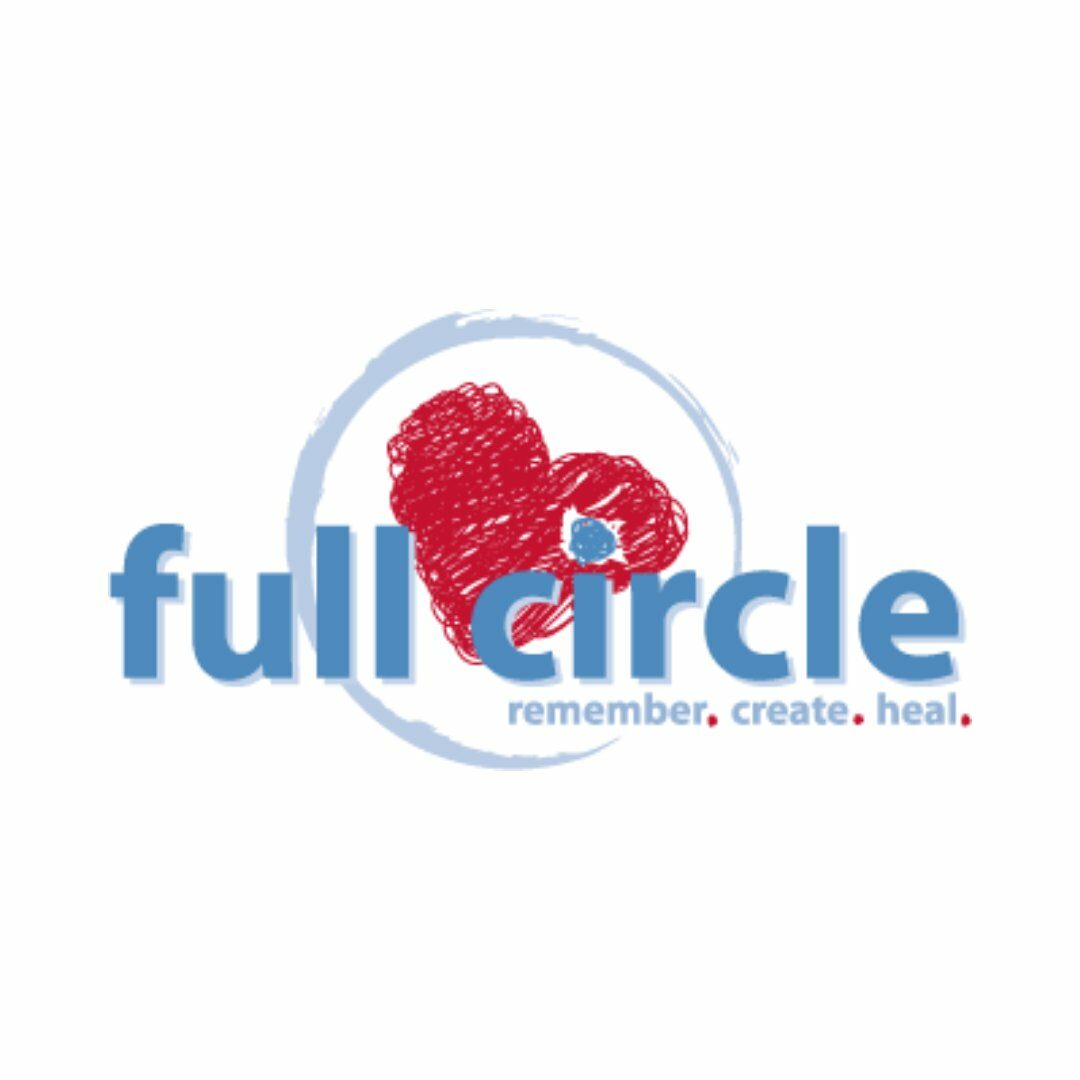By Britt Cowart, LCSW, Grief Services Director
Grief journaling is one way of allowing ourselves the space for genuine healing to take place, whether we’re ready and willing to express ourselves to others or not. Due to the copious amount of research suggesting that grief journaling after a significant loss has therapeutic value, journaling is a favorite Full Circle coping method for many reasons.

- There are well-researched physical and psychological benefits.
- Grief journaling offers a simple outlet that requires only a pen and paper, or computer/tablet.
- Journaling does not require us to talk out loud if we are not ready.
- We can take small but solid and honest steps forward, which is the only way through grief.
- Journaling can provide a means to face our vulnerabilities in grief and take on griefwork as restorative, empowering heart work. Often, we can bear more than we think we can, but we need to be able to share the natural feelings of suffering and explore the depths of our emotions so we can rebuild after the loss of a loved one.
- According to grief experts, the task of reconstructing our personal self-narrative is critical in the healing process. Grief journaling is one way of allowing ourselves the safe, judgement free space for genuine re-telling and healing to take place.
Below you will find tips and prompts that can help you get in touch with what’s showing up for you, what’s keeping you stuck, and/or what’s begging to be shared so you can mindfully be present for your healing.
Journaling Tips:
Grief journaling is not about writing perfectly. Natalie Goldberg offers these tips in Writing Down the Bones: Freeing the Writer Within
- Keep your hands moving. Do not pause to reread the line you have just written…that is stalling and trying to get control of what you are saying.
- Do not cross out. That is editing as you write. Even if you write something you did not mean to write, leave it, let it be.
- Do not worry about spelling, punctuation, grammar.
- Lose control.
- Do not think or be logical. Let your right brain take over.
- Dive into the tough stuff. Do not avoid the scary, unsettling parts of grief…this is sometimes where the best processing and healing takes place.
- Keep it simple. Journal on a grief emotion, use a sentence starter or grief journal prompt or draw/paint your grief.
- Be compassionate and gentle with yourself. Remember, this is a judgement free zone.

Journaling Prompts:
- Today, I am really missing…
- The hardest time of day is…
- I have been feeling a lot of…
- I feel most connected to my loved one when…
- I can honor my loved one by…
- A comforting memory of my loved one is…
- Whenever I start to feel overwhelmed by pain, regret, guilt, or despair, I will…
- To be more compassionate towards myself, I am willing to try…
- Some of my grief triggers are…
- I could use more of…
- I could use less of…
- I am grateful for…
- My favorite memory of my loved one is…
- My most difficult memory of my loved one is…because…this memory makes me feel…

Alternative Journaling Ideas:
- Visual Grief Journaling—If accessing words is too difficult or putting pen to paper too intimidating, maybe try cutting words or pictures from magazines and gluing them down in a journal or making a collage. Finding pictures of your loved one and reflecting in words under each picture about the memory or feelings the picture evokes.
- Scrapbook Journaling—Make memory books using digital and/or paper methods.
- Write a love letter to your loved one—Tell them what you love and appreciate about them; recall a favorite memory the two of you shared; Tell them what has been going on in your life since their death ie. how you have grown, changed, remember and honor them.
- Write a love letter to yourself—Tell yourself how you have changed and grown since your loved one’s death and the lessons you have learned; Give your “past self” advice and words of encouragement.



